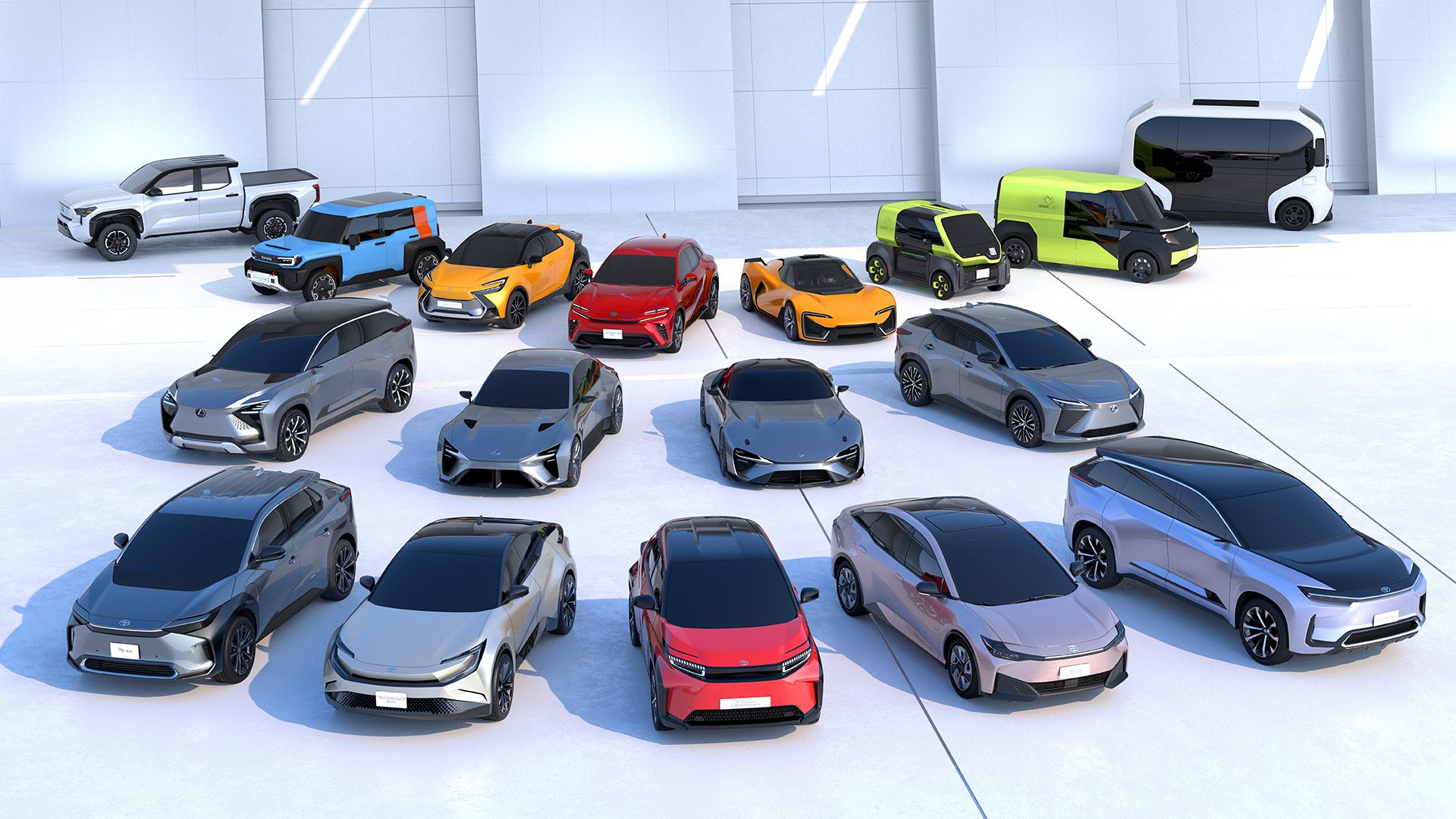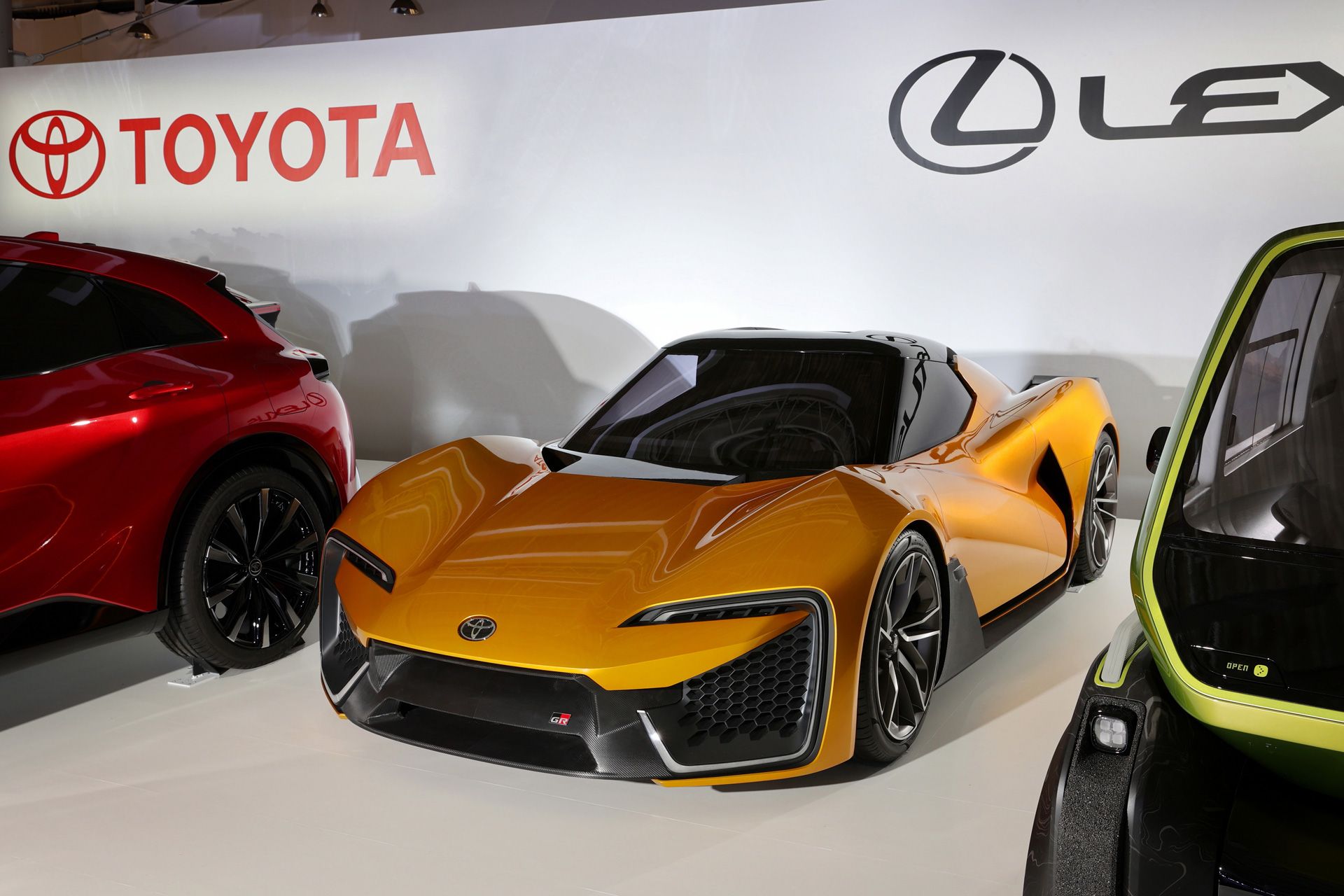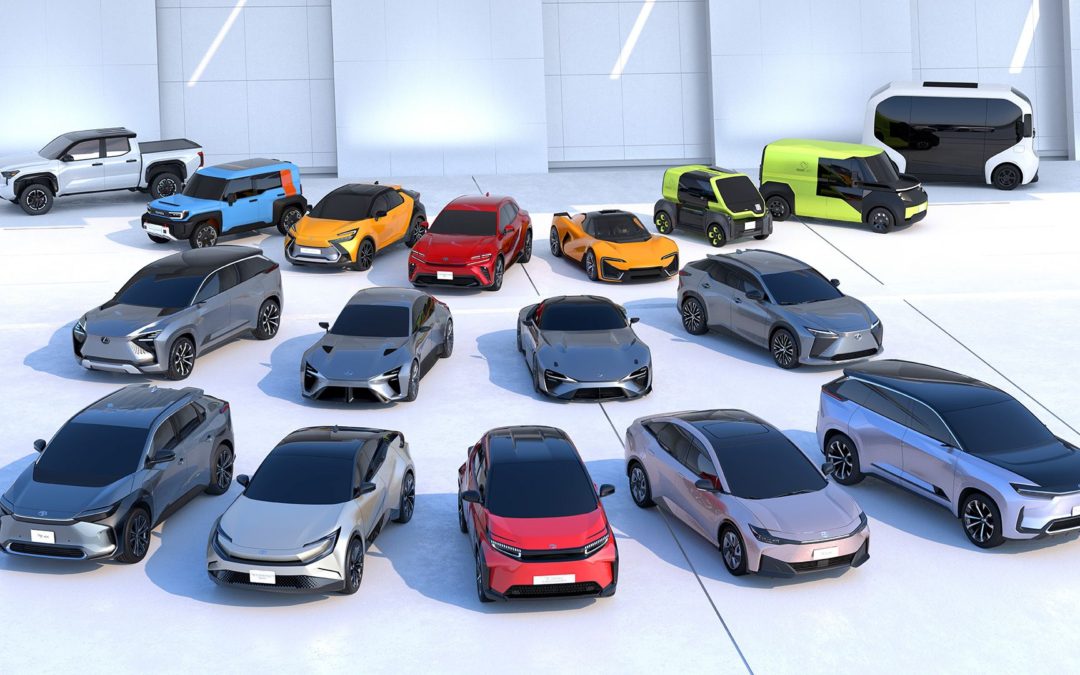
On December 14, the world's largest automobile manufacturer, Toyota, announced that they've committed $70 billion towards electrification. Half of this sizeable sum is aimed to launch 30 new electric models by 2030. Their luxury brand, Lexus, desire to have an all-electric lineup in Europe, North America and China by that year.
And in a highly unusual move, Toyota showed a whopping 17 new concept cars, ranging from sedans and compacts to off-roaders, delivery vehicles and even sports cars.
"Specifically, we plan to roll out 30 battery EV models by 2030, globally offering a full line-up of battery EVs in the passenger and commercial segments. Please take a look. This is Toyota’s greater battery EV line-up! Welcome to our showroom of the future! (…) The EV era is an opportunity and a chance for more variety and more fun! An EV for you, an EV for me, and an EV for everyone", says Akio Toyoda, President, Toyota Motor Corporation during a press conference.

This is a surprising move from Toyota, which previously expressed skepticism towards electric vehicles and didn't sign the Glasgow Declaration on Zero Emission Cars and Vans during COP26.
And even after this announcement, they're not fully convinced that electric vehicles are the future: hybrid and hydrogen-powered vehicles remain a strong part of the company's future strategy.
"As for why we try to keep so many options, in terms of business management, one might think it’d be more efficient to focus on fewer choices. However, we believe that quickly adapting to changes in the future is more important than trying to predict the future, which is uncertain. That is why we want to keep options available for our customers until the right path is clear", Toyoda states.
This is great news, regardless of whether you care about a sustainable future or if you're just a person who's into cars. We previously covered how electrics will benefit the enthusiast and perhaps things work the other way around as well: that the ability to find a car that suits individual needs and desires, however specific or quirky, might convince many skeptics to get a sustainable vehicle.
And hopefully moves like this will convince competitors to accelerate the pace at which they expand their electric ranges. A slippery slope of optimism, where wider ranges lead to higher sales and lower emissions, leading to expanded ranges to match more needs.
Image: Toyota





